Inside: Having too much clutter can affect your family in a variety of ways, but the good news is you can change it.
A guest post by Rose Morrison
Your home should be a comfortable and safe place to relax, enjoy time with family and build memories.
Having too much clutter can get in the way of those good times, though.
Clutter can affect every member of your family, from little ones to adults, causing physical, mental, and emotional challenges.
Continue reading to find out:
- how having too much clutter can affect your family
- ways to know if you have too much clutter in your home
- how to create the clutter-free space of your dreams
Let’s get started!
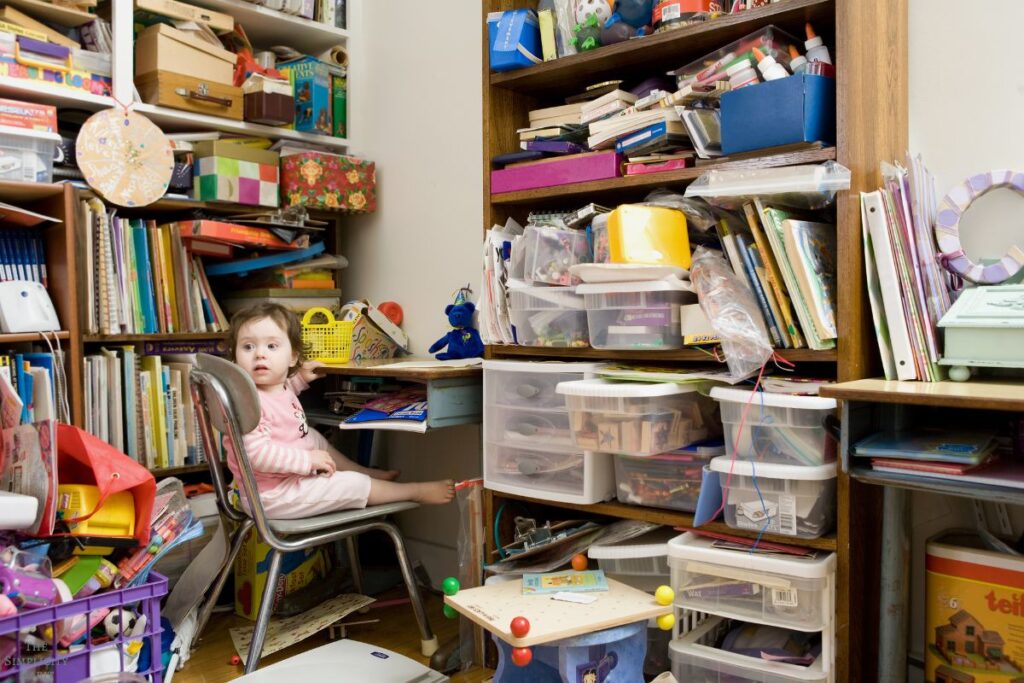
6 Ways Having Too Much Clutter Can Affect Your Family
Clutter can negatively impact your life as well the lives of your family members too. Consider these six ways that clutter could be impacting your home and learn how you can take steps to turn it around.
Too Much Clutter Can Affect Your Family’s Physical Health
Clutter can put your family’s physical health at risk in several ways, from creating tripping and fire hazards to encouraging unhealthy eating habits.
1. Bodily Injury
Leaving clutter around your house puts you and your family at risk of injury. Adults, teenagers, and children can trip on things, while infants may come in contact with dangerous items as they learn to move and explore.
Clutter can also block exits, creating fire hazards and preventing safe evacuations in emergencies.
2. Respiratory Issues
As items accumulate throughout your home, dust, dirt, and mold may also start to grow. Dust and other allergens can cause a variety of health issues and respiratory problems, especially in children and older adults.
Ever-expanding piles of stuff can make cleaning harder, only increasing the amount of dust and dirt in your home.
3. Diet Difficulties
Chaotic living spaces can increase stress and make it harder to control impulses, leading to unhealthy eating habits.
If kitchen and dining areas are cluttered, it may be easier for family members to grab a quick snack or boxed meal that may not be the healthiest.
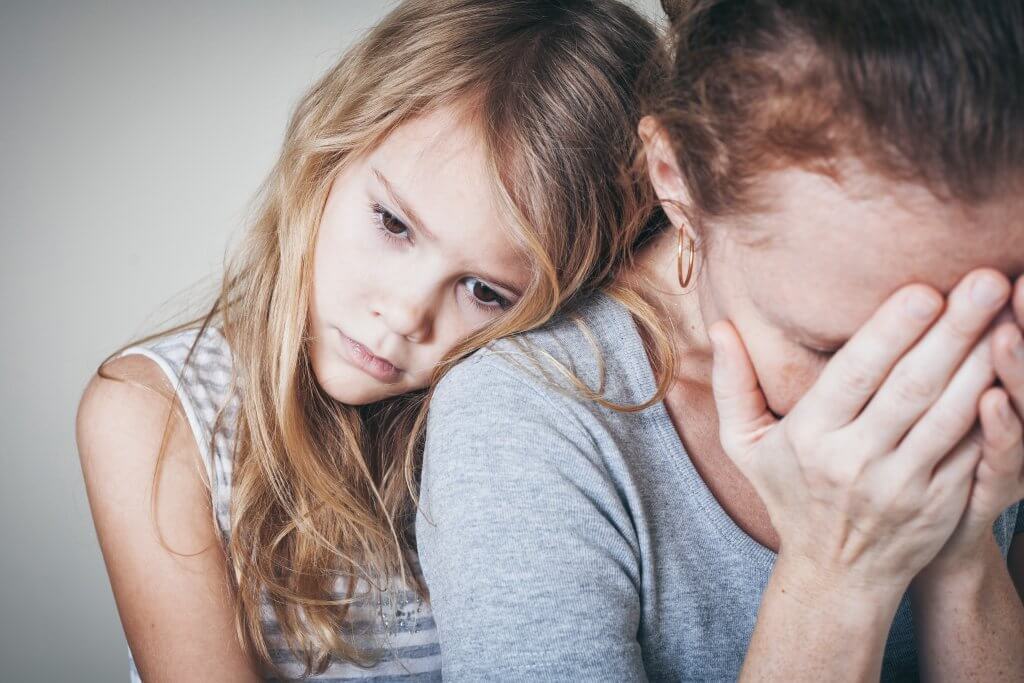
Too Much Clutter Can Affect Your Family’s Mental Health
Clutter can also take a toll on your mental health, leading to more anxiety and depression in children and adults alike. It affects every family member’s ability to function and focus at home, work, and school.
4. Anxiety and Depression
Messy homes can cause you and your family to feel overwhelmed and stressed. Family members can even develop chronic stress due to constant clutter, and in studies where cluttering gets to the point of hoarding, there can be a severe impact on family life.
Children and teenagers who grow up in cluttered homes are more likely to develop generalized anxiety and depression as they grow older.
5. Concentration and Productivity
Adults and teenagers may see the effects of a cluttered home spilling into careers, schooling, and other parts of life. Clutter increases visual stimuli, making it harder to focus and maintain productivity.
Kids are more likely to have difficulty focusing at home and school if their house is filled with distractions from clutter.

Too Much Clutter Can Increase Emotional Difficulties
Family members of all ages are prone to emotional health issues when their homes are cluttered. Adults, teenagers, and children may struggle to control their emotions when they are dealing with crowded or chaotic living spaces.
Additionally, children may start to associate “things” with happiness instead of spending time with family, participating in hobbies, going to school, or other valuable activities. As they become attached to items, it can be harder for them to let go of things they don’t need.
6. Relationships
Cluttered spaces can strain relationships between partners, siblings and parents, and children.
Family members may feel uncomfortable inviting friends over because living spaces, furniture, and surfaces are crowded with items. Avoiding these valuable interactions can lead to social isolation and difficulty connecting with others.
Living in a cluttered environment can lead to additional stress, frustration, and resentment among family members.
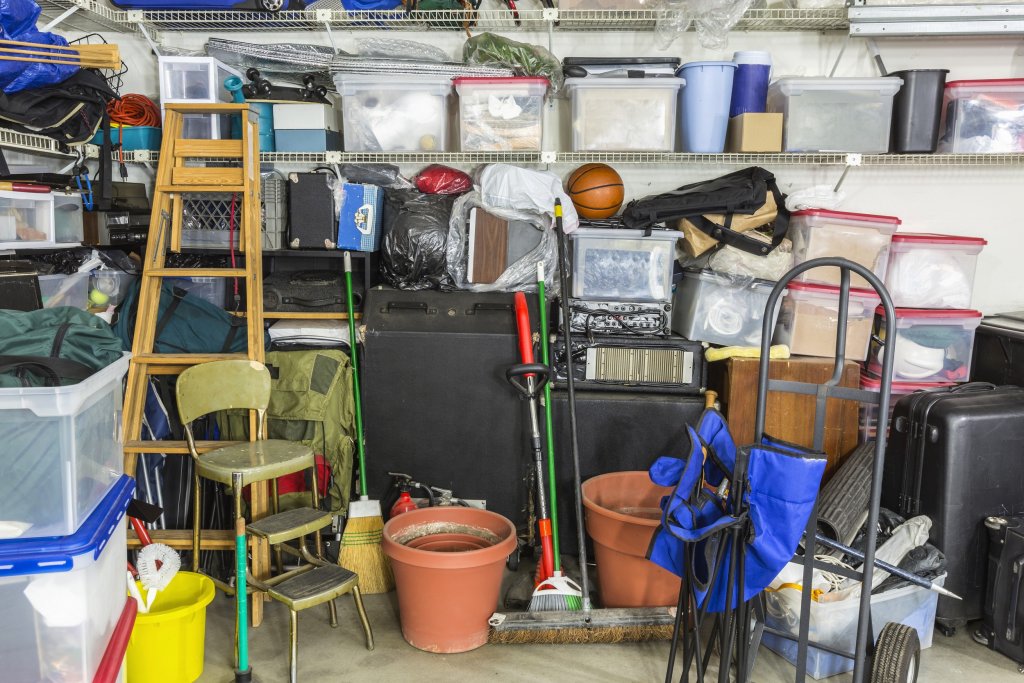
How to Know If You Have Too Much Clutter
Keeping your home clean and organized enables you to prevent the negative physical, mental, and emotional health effects of clutter, but where do you begin? How do you know if you have too much stuff?
You may have too much clutter in your home if you have:
- Difficulty accessing living spaces: Clutter can pile up, making it difficult to access doors, furniture, and safe walking paths throughout your home.
- A habit of running late: If you are always running late because you can’t find things around your house, you may have too much clutter.
- Tension between family members: Excess clutter can lead to more fighting and frustration in your home.
- Constant feelings of stress: You may have too many items piling up around your home if you notice family members are constantly overwhelmed and stressed.
- A fear of inviting friends over: If anyone in your house is afraid or embarrassed to invite people over, it may be because you have too much clutter taking up space.
- Trouble concentrating: Procrastination, loss of focus, and difficulty maintaining productivity are a few signs of a chaotic, overstimulating environment.
- Multiples of the same item: If you are constantly replacing things because they keep getting misplaced throughout your house, you might have too much clutter.
These are just a few signs that too much clutter is affecting your family’s health, relationships, and well-being.
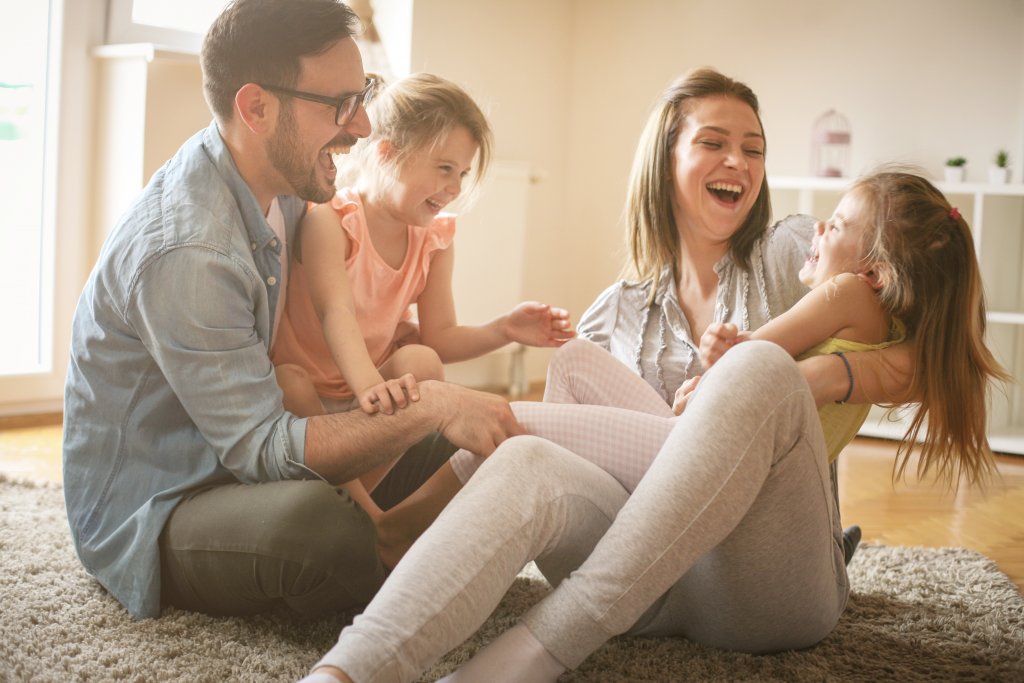
How to Enjoy a Clutter-Free Home
While tackling the clutter in your home may feel intimidating, know that it will be worth it for your family’s happiness and your home’s function.
Follow these tips to start decluttering your home and improving your family’s physical, mental, and emotional health.
1. Create Goals
It can take time to sort through your belongings and clear the clutter, but setting manageable goals can keep you motivated throughout the process. Consider goals like:
- Dedicating 30 minutes every day to decluttering
- Working in one room for a week, then another the following week
- Filling one bag of items to donate every day
2. Work Together
Sit down with everyone living in your home and agree on a cleaning plan each person can commit to. It may also help to have a friend or two come over to help out occasionally since they can bring a fresh perspective to help you determine what to get rid of or keep.
3. Find Storage Solutions
Whether you have sentimental items you would like to keep or just need an organization method to sort essential belongings, you can use various storage solutions to help you keep your living spaces clutter-free.
Make sure that whatever organizational system you choose works for you and your family members so that you can work together to maintain it.
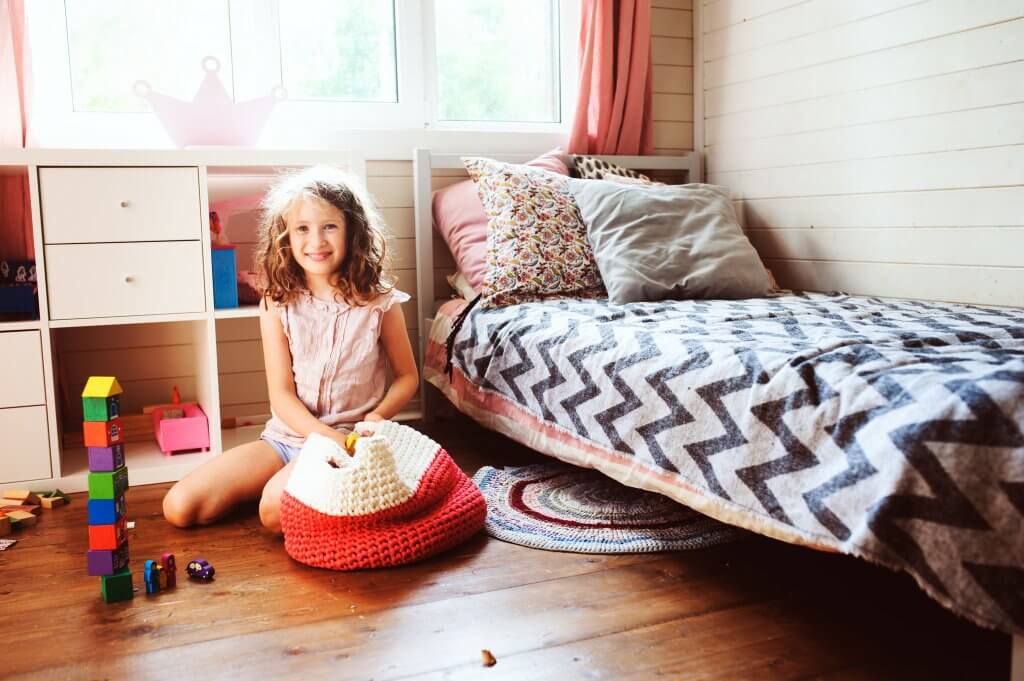
4. Teach Your Children Good Habits
One of the best ways to help your kids deal with clutter is to prevent it from accumulating in the first place. Teach little ones how to be responsible for their things and work with them to get rid of toys when they no longer play with them.
5. Help Your Adult Kids Prepare for a New Home
When your kids move out for college or their next adventure, they have the potential to create a healthy space for themselves. You can help them decide which items are essential so they can avoid things that clutter their space and lead to adverse health effects.
Also, instead of buying new items for them, see what you no longer need in your home and pass it on to them.
6. Use Multipurpose Furniture
Multipurpose furniture creates more storage while keeping your living areas clean and organized. It can reduce bulky items taking up space while also getting things out of the way so your home can be comfortable, attractive, and functional.
7. Practice Mindfulness
Once you’ve decluttered your home, the next step is to continue keeping your home clean and organized. Always carefully consider items before purchasing them to determine if you really need them.
You can also set aside time at the end of the day to mindfully pick up around the house and put things where they belong. Creating decluttering habits in your home will help you to maintain your space.
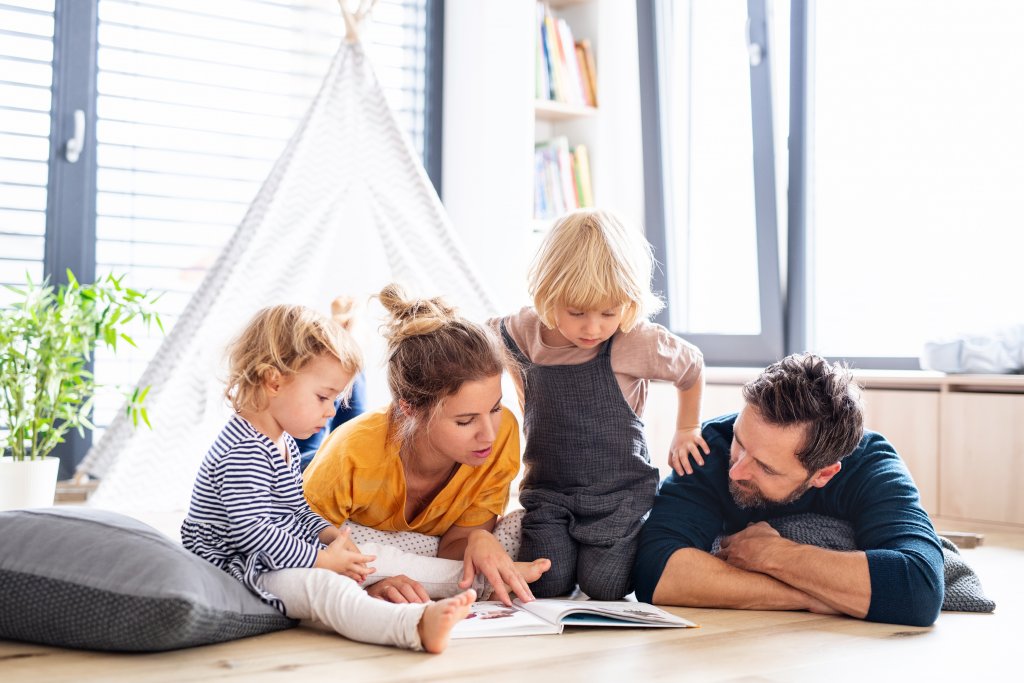
Too Much Clutter Can Affect Your Family, But You Can Change It
Too much clutter can affect your family in negative ways, but the good news is you can take steps to start to change it today. By working to let go of clutter and changing your habits going forward you can enjoy a simplified space.
Ultimately, decluttering is an act of love that not only benefits you but your family members as well.
Keeping your home clutter-free can better protect your family’s health, promote their general well-being, prioritize valuable moments, and help everyone enjoy a beautiful and healthy living space.
A helpful plan for getting rid of clutter in your home
Sign up on the form below to get weekly decluttering and simplifying inspiration sent straight to your inbox! You’ll also get the free Declutter Plan of Attack Worksheet to help you customize your own decluttering plan for your home.


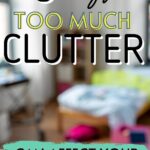
This article was much appreciated. It was timely for my family. We are decluttering our family home so I sent the article to all of my siblings. My goddaughter has an business focused on helping people organize their spaces. I sent the article to her as well. Thank you for writing the article.